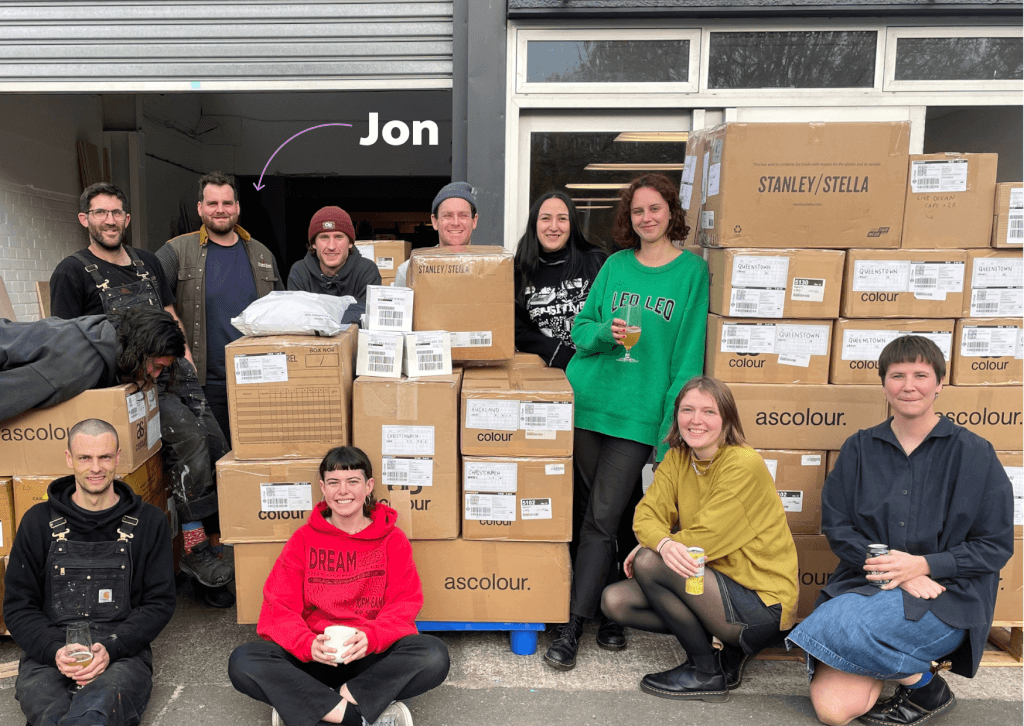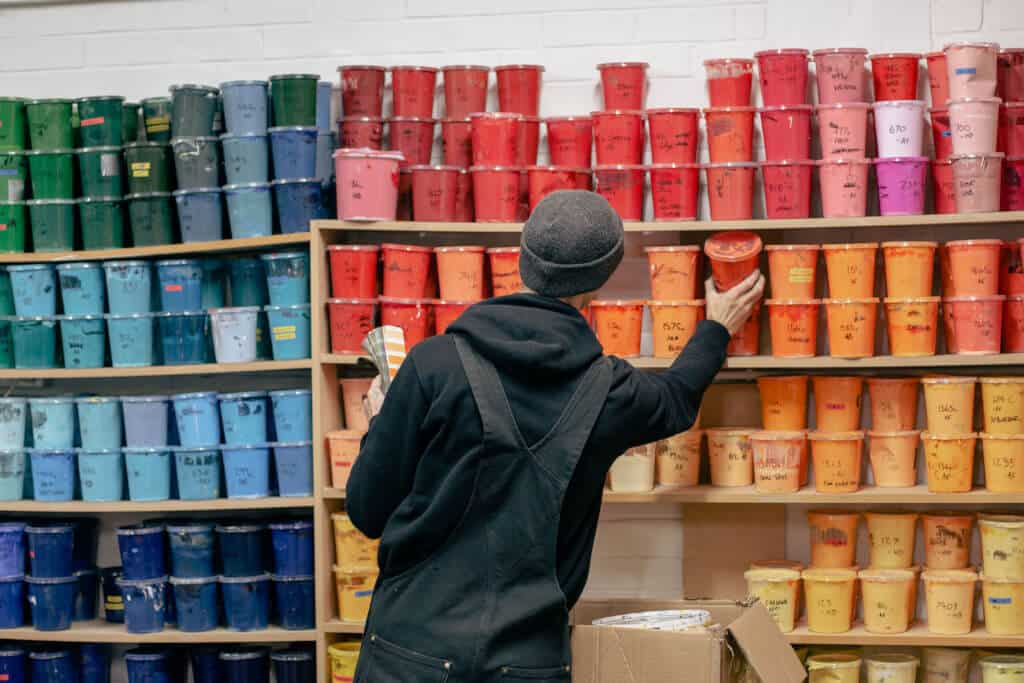
Sustainable Business: A Conversation With Jon From Print Room
We chat to Jon Thom, Co-founder of Print Room, about their unfiltered road to success and sustainability.


The Print Room Team
Print Room is a sustainably-minded kiwi print shop dedicated to the perfect print.
Much like Thankyou Payroll, they started from very humble beginnings in a small industrial garage in Dunedin’s Anderson Bay. 8 years on, they’ve grown to be a team of 17 and are one of Aotearoa New Zealand’s leading custom merchandise creators. They make custom merchandise for NZ’s favourite brands, SMEs, schools, universities, creatives – including yours truly – Thankyou Payroll.
We chose Print Room to be one of our suppliers because we admire their transparency and humility in regards to their sustainability journey. They’re proud of the steps they’ve taken and they’re open about the ones they’re yet to take. We wanted to share this with our customers in the hope that they draw some inspiration and motivation to incorporate sustainability into their procurement processes too.
Over to you, Jon…
Tell us a little bit about your personal story and how the Print Room came about…
In the early days, Chris Brun & myself were a couple of lads at the University of Otago, making shirts featuring artworks that I had painted or drawn. This side hustle then morphed into designing and printing merch or logos for local cafes and bars.
The first time we put ink to a T-shirt was on a makeshift screen printing setup that was assembled from an old door and a few hinges and springs from Mitre 10. The finished result was not great to say the least, but we had done enough to catch the screen printing bug. After hours of watching YouTube videos and plenty of trial and error, we managed to save up enough money to purchase a better setup and start producing T-shirts we were happy to put our name to.
This all seems like a long time ago now; we now have state of art screen printing, embroidery and decorating equipment to tackle almost any project. Our expert team is set up to take orders from 24 to 10,000 pieces and we service a client base all over New Zealand.
What does being a ‘sustainable business’ mean to your organisation?
The garment industry is one of the worst polluting industries in the world. Our goal is to challenge the status quo and strive to find better ways to create custom branded merchandise and apparel.
Often custom merch gets a bad name, a lot of the time it’s poorly made, badly designed and destined for the tip. Through our work at Print Room we want to change this.
We have a relatively young crew who care about the environment and the impact that we all have on our planet. We offer the highest quality water based printing & eco-friendly garments available. We also pride ourselves as design & print experts who know what will look good on a garment and strive to make custom merch that will be worn & loved for a long time.
It’s important to emphasise that being sustainable to us is about going on a journey and we know we’re still far from perfect – no organisation is. But every small step we take is a step in the right direction to drive change in our industry.
What has been your biggest achievement (in terms of sustainability) to date?
Several years ago, we made a significant switch in our business to exclusively use water based inks for all of our printing. We’re one of only a handful of garment decorators in Australasia to do this.
Typically, the industry uses a plastisol ink; a thermoplastic that is considered much easier to print with because it does not dry out as fast. Water based inks have also had a reputation for coming out duller and for being difficult to get accurate colour matches.
However in recent years, water based ink technology has significantly improved to rival the vibrancy of plastisol inks. Another key benefit of water based inks is that the print has a much softer hand feel than plastisol inks because of the chemical composition of the ink.
Previously, once we had finished printing an order using plastisol inks, we would use a turpentine based chemical to wash up the screens, since moving to waterbased inks we can use water! This is much better for our team’s health and for the environment.
Once we perfected the art of water based screen printing we then turned our attention to the garments we supplied to our customers. Over the years, we’ve been selective about the brands we choose to print on and are in a process of phasing out suppliers who do not have internationally recognised ethical production accreditations. This is not an easy task but we’re making significant progress in a country where we have a relatively limited ability to source goods.

What challenges have you faced on your journey to becoming a sustainable organisation?
A significant challenge for our company initially was that there were no environmentally conscious ink suppliers readily available in New Zealand. This meant we had to cut out the middlemen and go directly to a factory in the UK to source our inks. This was a hugely worthwhile exercise but it has taken significant time, resources and money to make a switch to a more sustainable option.
In the early stages of growth, we also ran up against some issues with sourcing sustainable garments. Though as our business has grown, we have gained a more significant presence in the industry and have managed to build stronger relationships with our suppliers. This has allowed us to go about driving positive change in our supply chain.
What’s next for Print Room?
We have a lot planned for the next stages of Print Room’s sustainability journey… By the end of 2023 we want to offer our clients the opportunity to return their worn out garments to be recycled or upcycled, by 2023/24 we aim to be a fully accredited B-Corp Company, and by 2025/26, we hope to be climate and water positive. There’s lots on the horizon and we’re excited to get stuck in.
Any words of wisdom for other kiwi businesses looking to start their sustainability journey?
I think the biggest thing we can do is challenge the status quo, have sustainability at the heart of all that we do and educate one another about how we can be better.
Just because something has always been done a certain way does not mean that it can continue to be done in that way if we’re to have any chance at curtailing climate change. It’s an exciting journey we’re on; we love seeking out knowledge, finding ways to constantly improve our processes and of course to leave a positive impact on the world.
To learn more about Print Room’s commitment to sustainability or their organisation in general, you can visit their website.
